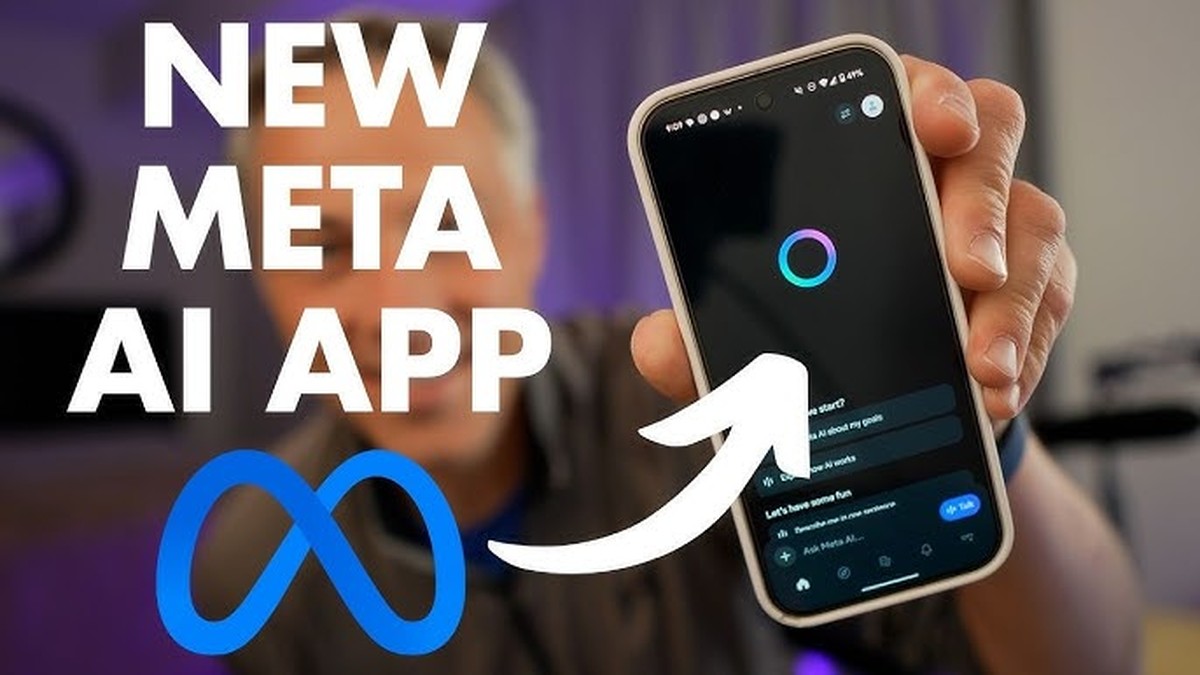06/05/2025
06/05/2025

NEW YORK, May 6: Meta has launched a standalone artificial intelligence chatbot app, Meta AI, which quickly climbed to No. 2 on Apple’s App Store charts. Promising a more “personalized” experience, the app provides tailored answers and advice, along with a new social component that allows users to share their AI-generated conversations and images publicly.
However, the app has also triggered significant privacy concerns due to its integration with Facebook and Instagram and its broad data collection practices. Meta AI draws on years of user data from these platforms to personalize interactions — raising alarms among privacy advocates.
When first tested, Meta AI generated a "Memory" file identifying the user’s interests based on conversations, including sensitive topics like fertility techniques, divorce, payday loans, and tax laws. The app automatically stores conversations and uses them to enhance responses, train future AI models, and eventually, serve targeted advertising. While users can delete stored data and memories, doing so requires navigating complex settings, and deleted data may not be fully erased.
Meta spokesperson Thomas Richards defended the app’s design, saying: “We’ve provided valuable personalization for people on our platforms for decades. The Meta AI app is no different. We offer transparency and controls so people can manage their experience.”
Still, experts warn the controls fall short. “The disclosures and consumer choices around privacy settings are laughably bad,” said Ben Winters, director of AI and data privacy at the Consumer Federation of America. “I would only use it for surface-level prompts—nothing personal.”
Meta AI is deeply integrated with Facebook and Instagram. If users set up the app through their existing social accounts, the AI can access and share data across these platforms. To avoid this, users must create a separate Meta AI account.
Moreover, the app records every interaction, including text and voice, and stores key facts in a personal “Memory” file. These interactions feed directly into Meta’s AI training systems. Unlike competitors such as ChatGPT and Google Gemini, Meta AI offers no opt-out option for data retention or training. Meta’s terms of service warn users: “Do not share information that you don’t want the AIs to use and retain.”
Privacy researchers caution that AI systems personalized at this level can lead to unforeseen consequences. “Just because these tools act like your friend doesn’t mean they are,” said Miranda Bogen, director at the Center for Democracy & Technology. Personalized AI, she noted, can create bias or reinforce stereotypes based on incomplete or inaccurate data.
Another feature raising concerns is Meta AI’s "Share" button, which posts chats publicly by default on a “Discover” tab. There is no way to restrict sharing to just friends or private messages, though users can later hide shared posts.
While Meta AI does not currently show ads, CEO Mark Zuckerberg recently indicated that product recommendations and advertising will be introduced. This raises questions about whether AI-generated advice may one day be influenced by commercial interests.
For instance, during one test, the AI inferred parenthood from a conversation about baby bottles, potentially leading to assumptions and recommendations based on flawed data.
Justin Brookman, director of technology policy at Consumer Reports, expressed concern: “The idea of an agent is that it works on my behalf — not on trying to manipulate me on others’ behalf. Personalized advertising powered by AI is inherently adversarial.”
Currently, users can delete individual chats and clear their Memory file, but these actions don’t always fully erase the data. To completely remove personal information, users must delete original chats and instruct the app to wipe all stored content.
Meta maintains that it trains its models to minimize the risk of personal data appearing in other users’ responses. However, critics argue the lack of opt-out mechanisms and the potential for data leakage make Meta AI’s privacy model especially problematic.
As personalized AI tools become more deeply embedded in everyday technology, experts are urging greater transparency and user control. For now, users are advised to be cautious about what they share with Meta AI — and to read the fine print.


